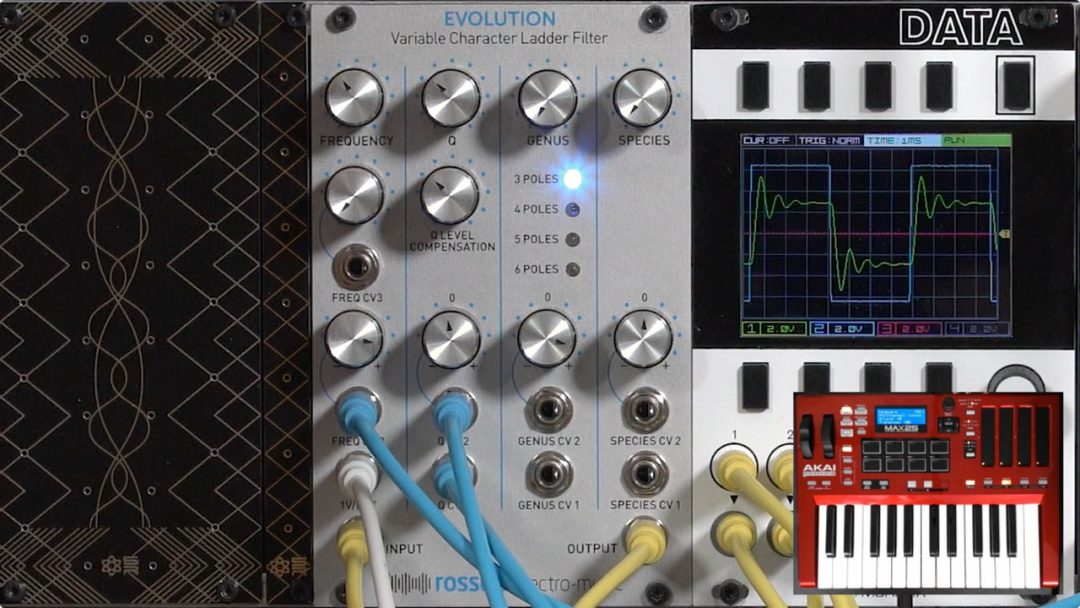I created a set of four movies showing off the various capabilities of the Rossum Electro-Music Evolution Variable Character Filter. The first movie reviews its roots as a 4-pole low-pass transistor ladder design with roots back in the E-mu Modular Model 2100 VCF. I then explain its connections and controls while demonstrating the basic range of sounds this filter produces, including frequency-modulating its cutoff. The other movies dive deeper into its Genus, Q, and Species sections respectively.
The second movie dives deep into its Genus section, where it crossfades between 3, 4, 5, and 6 pole response. In addition to hearing what the different configurations sound like, I explain what’s going on underneath the hood, exploring the transition zones between modes and showing how the filter’s resonant frequency changes with the number of poles. Along the way I demonstrate using an envelope, LFO, and VCO to modulate the Genus parameter.
The third movie spends a lot of time exploring resonance and feedback. The Evolution is interesting in that the frequency of self-oscillation attempts to sync to each harmonic as you perform a filter sweep, and also changes in pitch as you change the number of poles. I also demonstrate its Q Level Compensation control to cure the way a transistor ladder filter normally gets quieter at higher resonance settings. By the way, the Evolution is also a very clean sine wave oscillator at full resonance with excellent tracking.
This fourth of four movies on the Rossum Evolution filter wraps up our explorations by diving into the Species parameter, which acts as an input level, overdrive, and output level all under one knob. Setting Species to around the halfway point results in the usual slightly-congested overdriven nature of many filters, where cranking it all the way shapes the output into something similar to a square wave, damping resonance and suppressing even harmonics as it does so. By the way, the Species parameter also sounds great when frequency modulated!
For more information on this module and others, join the Learning Modular Patreon Tribe. For more on the Learning Modular Synthesis Eurorack Expansion Project for those exploring what module to add to their system next, click here.

